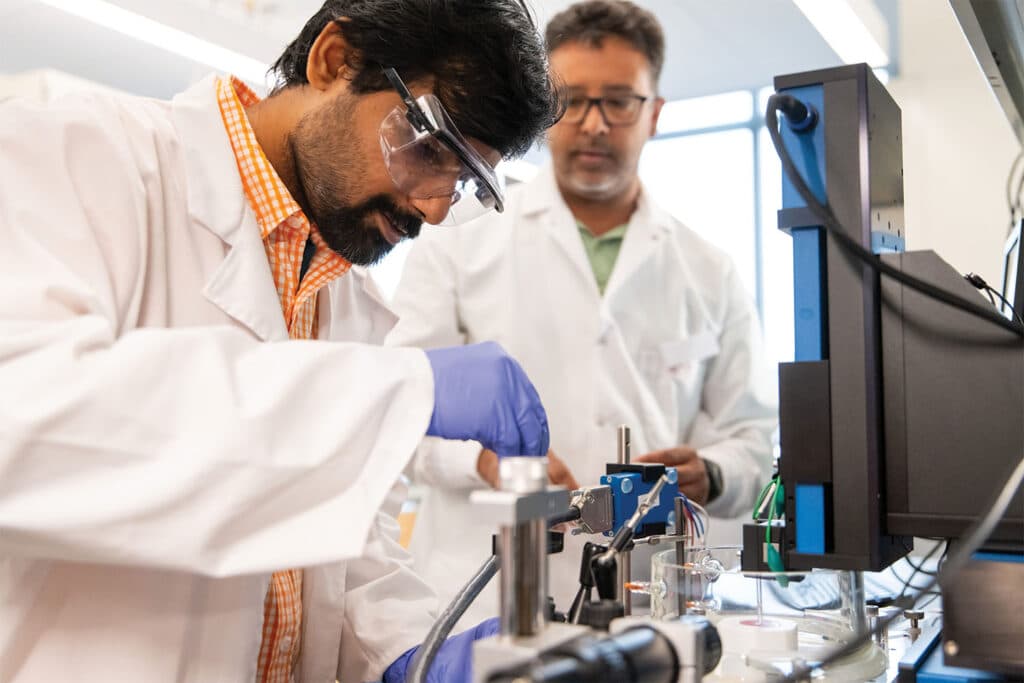
Chemical Engineering, PhD
Chemical engineers are the innovators and forward thinkers of the future. From creating the newest viral product to saving countless lives with medication, they can do anything they set their minds to. If you wish to advance your career and make impactful solutions for society, you should get a PhD in Chemical Engineering from UT.
Program overview
Our PhD program provides an in-depth education in the fundamentals of chemical engineering. You will develop the ability to conceive, conduct, direct, and communicate original research you perform related to a specialized subdiscipline. Under the supervision of internationally revered faculty members, you can perform research and grow in your own discipline, leaving your mark on the world.
Energy Science and Engineering Concentration
Although it is not required, our PhD program has an Energy Science and Engineering concentration available. It provides you with knowledge in the production, transformation, and impacts of energy resources related to chemical engineering.
Why Study Chemical Engineering?
Anyone who wants to put their love of chemistry, physics, and mathematics to practice in a career should consider studying chemical engineering. You can take the traditional knowledge and apply it to new areas of application, transforming the discipline as we know it. Along your journey through our PhD program, you can foster professional connections, providing a strong network after graduation.
What can you do with a PhD in Chemical Engineering after graduation?
Anyone who receives a PhD in Chemical Engineering usually works in government labs, industrial labs, or academia. They conduct experiments, research in their field of interest, teach at a university, or design instruments or machines that process chemicals. The possibilities as a chemical engineer are vast after graduation.
Featured Courses
Below are some of the courses that students in our program can choose to take. For a full list of courses, visit the Graduate Catalog.
CBE 531 Advanced Chemical Engineering Thermodynamics
This class covers phase equilibrium, composition relationship between phases, and introduces a microscopic approach to thermodynamics.
CBE 547 Advanced Transport Phenomena
Students will gain an understanding of unified treatment of momentum transport, energy transport, and mass transport after taking this course.
CBE 579 Advanced Biomolecular Engineering
In this course, application of engineering approaches and analysis to molecular and cellular biological sciences is covered.
Related Programs
Still considering other programs? Look through this list of related programs based on your interest in a chemical engineering:
Admissions and Aid
Choosing the right university to pursue an engineering degree is an important decision—and a significant investment. We want to make sure that you have the information you need to both apply and make attending UT affordable.


Ready to Join Us?
See yourself on Rocky Top? We’ve made it easier than ever to apply for admission. Learn more about our admission requirements and the steps to apply to be an Engineering Vol.
